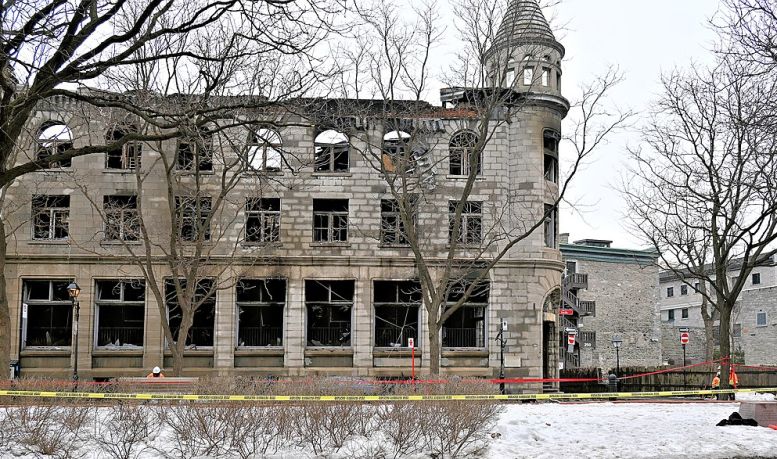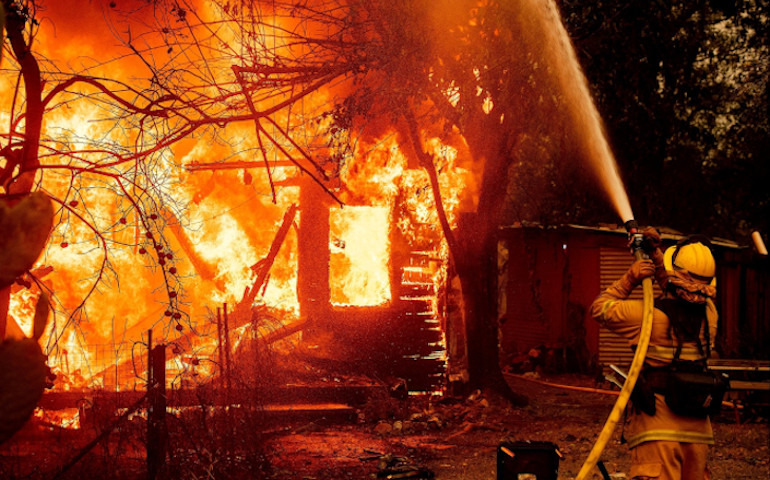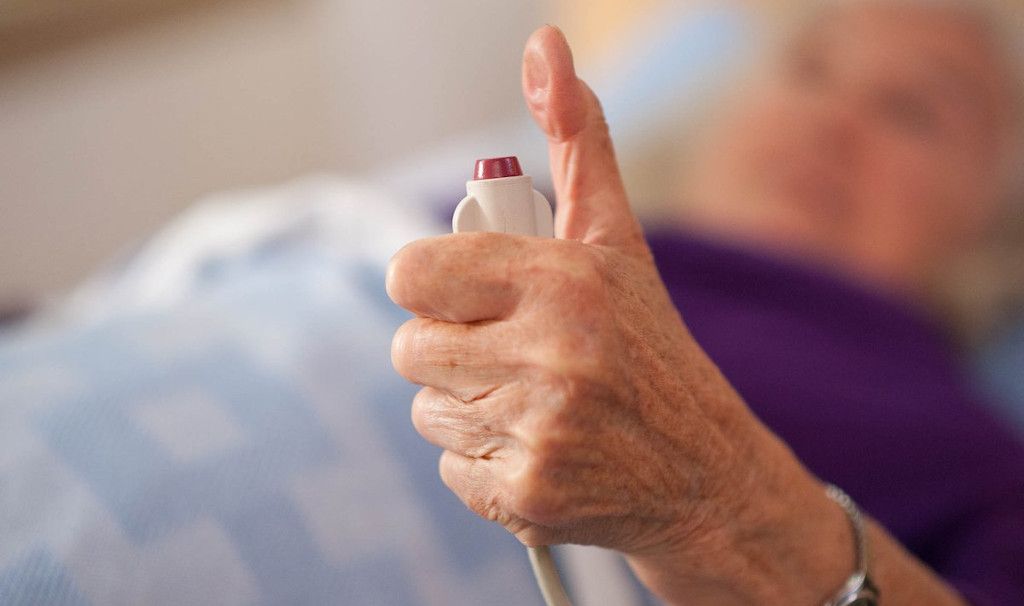Julien Daigneault and Charles D-V-L are members of Alternative Socialiste (ISA in Quebec).
The failure of Montréal’s flagship affordable housing program, “20-20-20,” is making the rounds in Canada. The metropolis’ housing crisis is making life unaffordable for many and boosting homelessness and poisoning from toxic drugs like never before. Entrusting the management of cities to the private sector and the police cannot solve these crises.
The last few decades of triumphant capitalism have led developers and real estate speculators the world over to reconfigure cities for maximum profit. The various levels of government have abandoned the role of promoting and building public housing. The various municipal parties have sold cities to the highest bidder. They are content to collect municipal taxes from private real estate projects.
This situation has led to an unprecedented surge in property prices and rents. Increasingly serious human tragedies are piling up as people are unable to afford decent housing. Faced with the scale of the rental affordability crisis, Projet Montréal (the governing party in Montréal) claimed to have improved the situation with its “20-20-20” program.
What is 20-20-20?
In 2021, Valérie Plante’s administration adopted a bylaw to encourage the creation of affordable and social housing by private real estate developers. The Règlement pour une métropole mixte stipulates that each new residential project must include 20 percent social housing, 20 percent affordable housing and 20 percent family housing (hence the 20-20-20). The aim is to bring “suitable” housing onto the market for everyone.
To achieve this, the city subsidizes the construction of so-called “social” housing. These must then be developed by co-operatives, non-profit organizations (NPOs) or the Office municipal d’habitation de Montréal (OMHM). In the case of “affordable” housing, the landlord receives a subsidy to “compensate” for the financial loss represented by below-market rents. Family housing, on the other hand, is simply housing with three or more closed bedrooms.
For two years, the city has been keeping its fingers crossed that developers will voluntarily refrain from making maximum profit.
“Confidence” in the Private Sector Leads to Fiasco
What are the first results? Almost all property developers avoided including social housing in their projects. Out of 150 projects, only five include social housing. Developers prefer to pay a fine to avoid the 20-20-20 “obligations.”
Despite Mayor Valérie Plante’s “progressive” rhetoric, her project is exposed for what it is: a buffet for real estate developers. But it’s not malice or naiveté that has guided the actions of her Projet Montréal party. What drives them to roll out the red carpet for the private sector has nothing to do with morality or conspiracy.
Projet Montréal and the various players in private real estate (including those in the “social economy” such as housing co-operatives, trusts and other NPOs) agree on a certain vision of urban development within the framework of the capitalist market. On the one hand, the city accepts mega-projects for luxury towers to collect maximum municipal taxes, without bothering with the tasks of promotion, construction and property management.
On the other hand, it does fund some affordable housing initiatives to avoid losing face altogether. The Plante administration has indeed acquired a handful of lots and housing units, such as those at Manoir Lafontaine. But the city essentially plays the role of intermediary and lender between owners, private real estate developers and management organizations.
Private Enterprise, the Only Horizon for “Progressives”
No matter how benevolent the rhetoric, political parties that want to “humanize” capitalism within the framework of capitalism always come up with the same solutions: finance the fine initiatives of private companies — large and small — by passing the bill on to the working class.
Last March, the Plante team announced its intention to extend the 20-20-20 principle to the scale of neighborhoods to make the city “shine.” Projet Montréal has set up a pilot project to accelerate large-scale real estate projects that are “respectful” of the environment and communities. The pilot project’s “facilitating cell” includes a former president of the COGIR real estate group, as well as that of Groupe Broccolini (a major construction and property developer company). All this in exchange for a few affordable, social and family housing units. There’s no chance of these homes appearing any more than the tens of thousands of others already promised over the past six years.
The development of the immense site of the former Montréal racetrack is an appalling example of this type of illusion. The city has owned the land since 2017. It promises to build more than 12,500 housing units there, a “significant portion” of which will be social and community housing, affordable and family friendly. It was only this year that a non-profit organization acquired a first lot to build 200 to 250 units. So far, no one wants to buy the second lot.
Why not? Because, with interest rates rising, the cost of materials skyrocketing and a shortage of workers on construction sites, real estate developers are no longer seeing the profits they’d hoped for. The result: Québec’s construction industry is at a standstill; in the midst of a housing crisis, it went from 3,000 building sites last May to 800 this year, a historic decline.
When Building No Longer Pays (Enough)
Builders are now complaining about costs and blackmailing governments to give them even more subsidies and handouts then they get already with weak rent controls and favourable be zoning. The federal government and three Canadian provinces are now exempting all new construction of rental buildings from the GST. The CAQ is evaluating the idea. The Québec Affordable Housing Program already promises public subsidies to private developers for the creation of affordable housing.
According to the Association des professionnels de la construction et de l’habitation du Québec (APCHQ), the construction of some 100,000 homes a year in Québec is needed to make up for the current shortfall in units. Who’s going to build them if the private sector won’t? People need housing now. There’s no time to wait for their profit rates to return.
Projet Montréal, A Party for Homeowners?
This “all-for-the-private” approach comes as no surprise when one learns that those who decide on housing in Montréal are also landlords. The case of Maeva Vilain, borough councillor of Plateau-Mont-Royal for Projet Montréal, is one of the worst.
She and her husband own five residential buildings in Montréal, worth a total of $6 million. In addition to being the elected official with the most buildings, she’s also the most crooked, with a dozen evictions, abusive rent increases and one repossession to her credit. That didn’t stop her from sitting on the Housing Commission until 2022.
Yet Valérie Plante and her party were elected twice based on housing promises. Instead, Projet Montréal’s reign has been one of illegal hotels and Airbnbs (such as the one that burnt down in March, killing 7 people), real estate flips, fraudulent renovations, homelessness and a growing toxic drug crisis. To mask her own failure, the mayor continues to lament the lack of money from the provincial or federal governments. This underfunding is real, but it doesn’t explain everything. After six years in power, Projet Montréal’s record on access to housing could only be described as disastrous.
Homelessness on the Rise
According to a recent study, housing evictions are the leading cause of homelessness in Québec. The number of “visible” homeless people almost doubled between 2018 and 2022. In Montréal, evictions and fraudulent evictions have doubled since 2021. Makeshift encampments have sprung up in all parts of the city, particularly in neighborhoods undergoing gentrification.
The city has let over 1,500 more people fall into homelessness since 2018. The situation is prompting more and more shopkeepers and residents to complain about “undesirables.” How can the Plante administration talk about “living together” and “inclusiveness,” when homelessness is one of the worst forms of social exclusion?
Toxic Drugs on the Rise
The housing crisis fuels homelessness. Homelessness often intersects with use of illegal drugs such as fentanyl, crystal meth or crack. In Montréal, the number of emergency toxic drug interventions has quintupled since 2010, reaching 49 per month. The projected number of people who will die from poisoned drugs is estimated at 172 for the year 2022-2023.
The people using illegal drugs are often found in gentrified neighbourhoods, at the very feet of new condo buildings. The consequences of gentrification are staggering. All this was predictable for anyone with the presence of mind to watch these crises evolve over the past twenty years, from Vancouver’s Downtown Eastside, through Toronto to downtown Montréal.
Projet Montréal’s Solution: the Police
Faced with these problems, the Plante administration prefers to invest historic amounts of money into its police force and bike paths, while cutting services for the homeless and public transit. Investments in the police have never solved social problems. They can, however, sweep homeless people out of neighborhoods won over to Projet Montréal.
And yet, this repressive, security-oriented approach was that of Valérie Plante’s rival, Denis Coderre, in the last municipal elections. A strange legacy for a party that made mobility and access to housing its main issues. But is this not really surprising coming from two capitalist parties that see real estate in the same way.
Build Public Housing Now!
The only way to solve the housing crisis is to build 100 percent public, energy-efficient and truly affordable housing, with union workers. This requires massive investment from all levels of government.
The redeployment of municipal housing offices across Québec is fundamental to this project. The list of 24,000 households waiting for low-cost rent from the OMHM has not shrunk with Projet Montréal. Thousands of low-cost housing units are unoccupied, either due to lack of maintenance or lack of staff to rent them out.
What’s more, working conditions are getting worse at the OMHM. Racist or violent acts against employees are on the rise. Prostitution, drug use and homeless people live in unsafe building structures are on the rise.
Many don’t see the point of public and para-public housing projects like those of the OMHM. These groups and individuals rely instead on co-operatives and other private NPOs. The “small private” model has short-term advantages. But the survival rate of these organizations and their very limited resources prevent them from being a large-scale solution to today’s problems.
The vast majority of resources allocated to the social economy come from public funds. Public money spent on housing should be well used. Only a large public housing and land-use planning network will make it possible to house the tens of thousands of families in need, in addition to achieving major economies of scale, concentrating expertise, and creating decent jobs.
Building Collective Power
But setting up a vast public and democratic land redevelopment project will not be possible with the people who currently sit in the parliaments. Workers and renters need to build their own political force — a force that represents the interests of tenants and ordinary people.
Today’s politicians will never have the courage or political will to go where the money and resources are. The people and construction expertise to solve the housing crisis already exist. The political elites will never talk about bringing the construction sector under public and democratic control, so that resources can be reallocated where it counts.
Vacant or abandoned land and buildings are many in Montréal. The political elites will never expropriate their owners to make their buildings available to the under-housed. The opulence of the ultra-rich is visible everywhere in Montréal. The political elites will never talk about reducing their own salaries or taxing the profits of banks, big grocers or big-box stores.
Building workers’ and renters’ political strength means concrete resistance against landlords and their city councils. Hitting the big landlords where it hurts means blocking construction sites, occupying empty towers and buildings, or occupying the Administrative Housing Tribunal. The political elites must be held directly accountable for the current situation.
The trade union movement has a central role to play in the fight against inflation in general and for access to housing in particular. Regional inter-union committees can develop a municipal program of struggle aimed at creating a socialist political party. This was the case in the late 1960s and early 1970s when the labour movement built independent anti-capitalist political voices, the Front d’action politique des salariés (Workers’ Political Action Front) and Regroupement Action-Montréal (Action-Montréal Group), which had important political platforms, including the public ownership of land. Without organized struggle, no gains are possible! Join Alternative Socialiste in building it!




